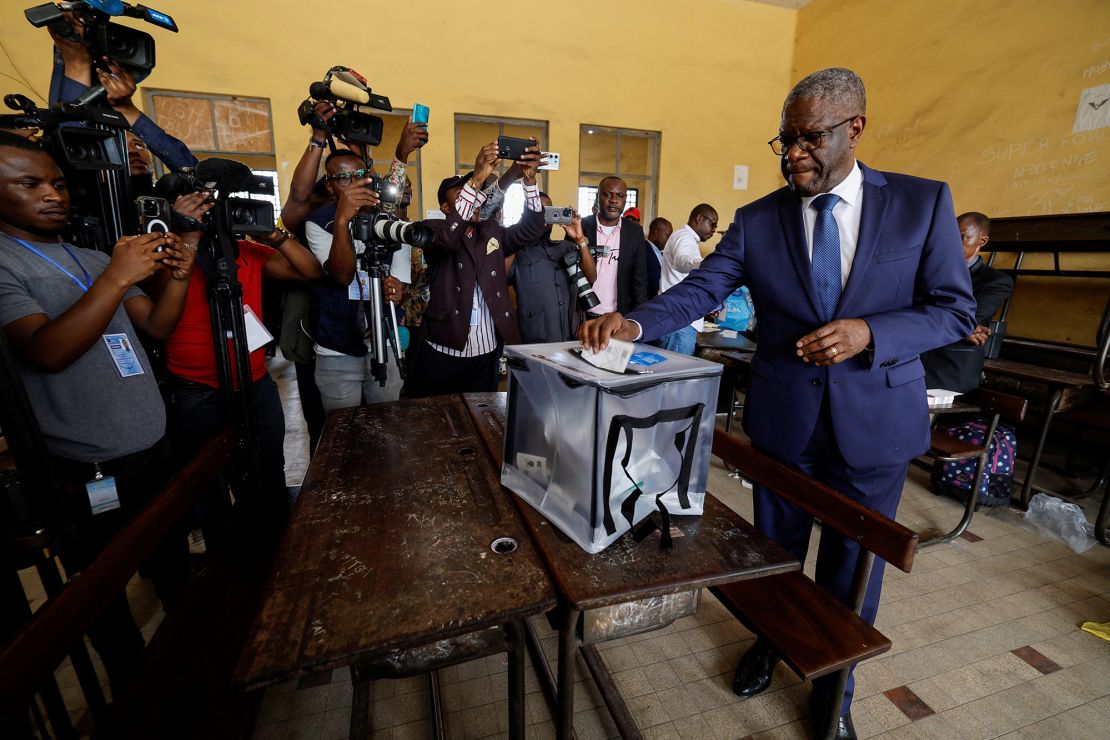The Presidential and legislative elections of the Democratic Republic of Congo are underway but have been impaired by delays and protests of fraud from the opposition, and electoral violence.
As voting commenced on Wednesday, logistical setbacks and other hiccups have been experienced as a potential deterrent for interested voters.
A hopeful second term for President Felix Tshisekedi is threatened by 18 opposition challengers in the mineral-rich yet poverty-stricken African nation.
“I have asked you to give me strength to continue the work that we have started,” Tshisekedi stated on Monday during his final rally, promising the Congolese people an expansion of the free education policy if re-elected.

Opposition contestants have equally wooed voters with promises to install peace, stability, and the economic development they claim was not present during Tshisekedi’s first term.
The DR Congo election opposition candidates along with religious and civil society electoral observers have voiced the need for electoral transparency while pointing out the voter list, illegible ID cards, and other issues.
“It is evident that the greatest electoral fraud of the century is taking place,” opposition candidate and Nobel Laureate Denis Mukwege stated on Monday.
The allegations of fraud raised by the opposition have been repeatedly denied by DR Congo’s election commission.
So much is at stake as a possible election dispute can spark several consequences including unrest in DR Congo, which is the world’s top producer of cobalt, a key battery component required for the transition into clean energy.
Delays were reported in several towns in the rebel-infested east of the Congo, including the capital Kinshasa, where voter lists were not published and voting materials had not reached polling places.
“It is a total chaos,” said presidential candidate Martin Fayulu, who was the runner-up in the disputed 2018 presidential election.
Fayulu stated that while the voting was well-organised in the capital’s affluent Gombe area while he cast his ballot, it was not throughout the rest of the nation.
“If all the people don’t vote in all the polling stations indicated by the CENI (national election commission), we won’t accept these elections,” Fayulu warned, adding that he would be at the front line of the protests.

In the eastern cities of Goma and Beni, some people struggled to find their names on voter lists, which were only made available at their polling stations on Wednesday morning, according to Reuters witnesses.
Nearly 44 million people, half of the population, were anticipated to cast ballots in the DR Congo election, but many may find it difficult to do so, especially the several million uprooted by violence in the large country’s east.
1.5 million people were unable to register to vote because of the conflict.
A voter in Kinshasa’s capital, Raymond Yuma, has said he is voting for hope.
“You hope for good things, good work, and I want security when you wake up in the morning.” Yuma said.
After sitting on a bench with three other persons, waiting in line for the doors to open, their voting cards were all unreadable.
Some registered voters in the eastern part of the country also claimed they couldn’t find their names on DR Congo election lists.
“The voters displayed on lists at the polling station are fewer than those who are lining up. I can’t find my name on the list and this could cause scuffles here because I also want to vote,” said Jules Kambale at a polling station located in Goma.
People also grew agitated and began arguing particularly in the capital after they waited for the DR Congo election voting to open during the more than two-hour delay.


